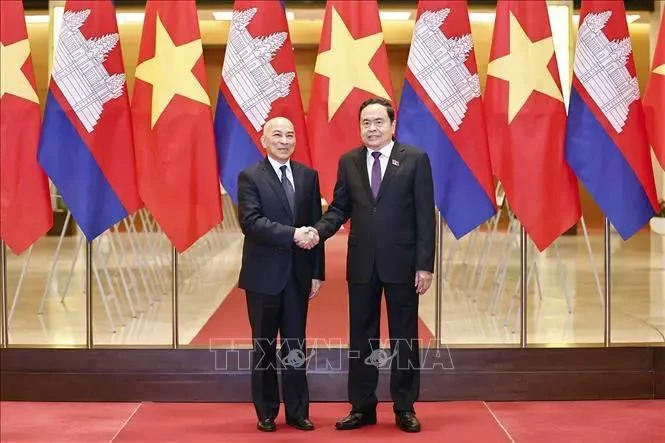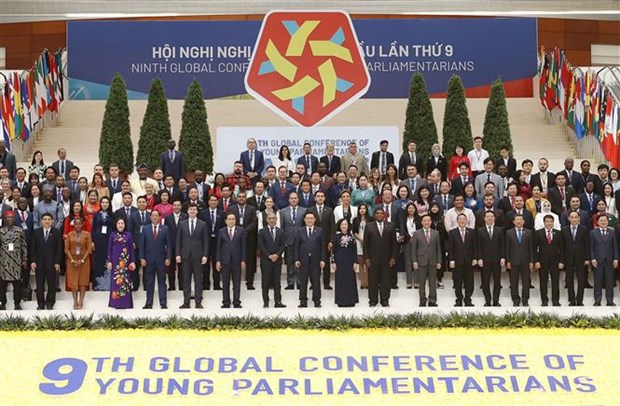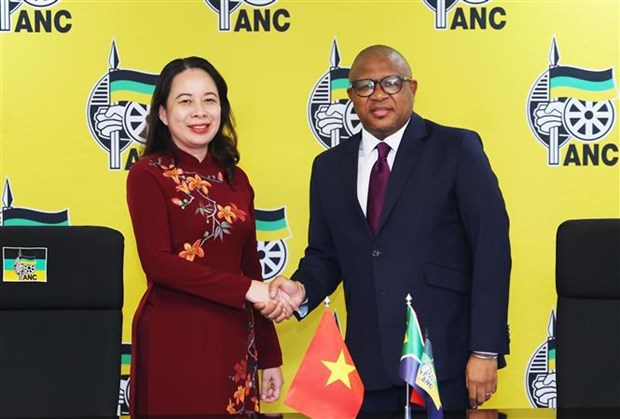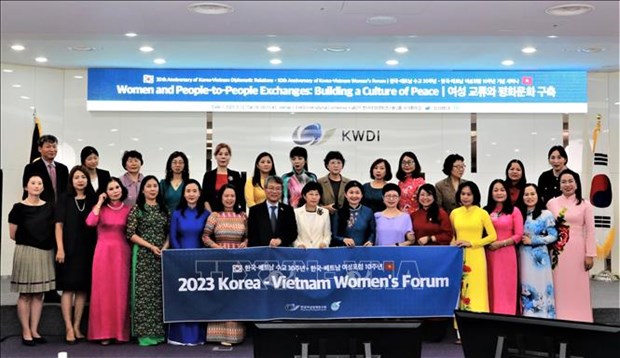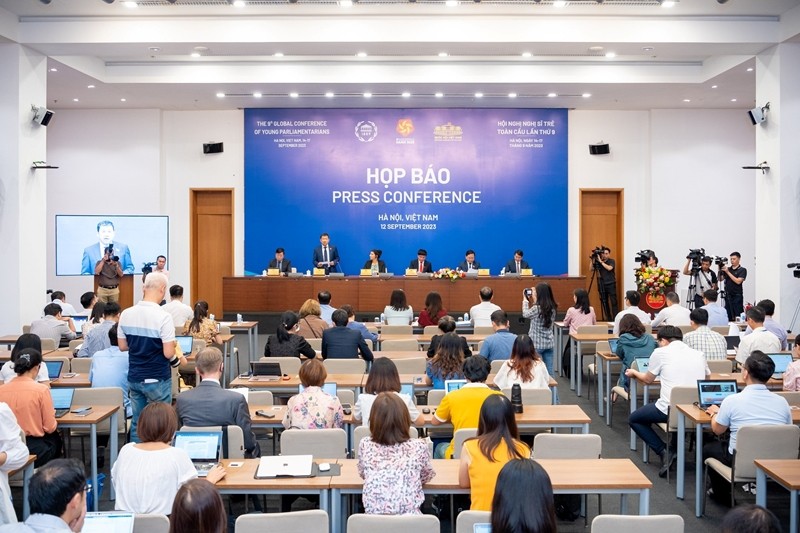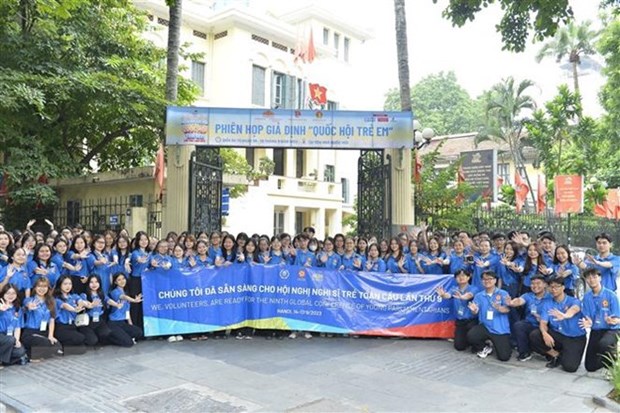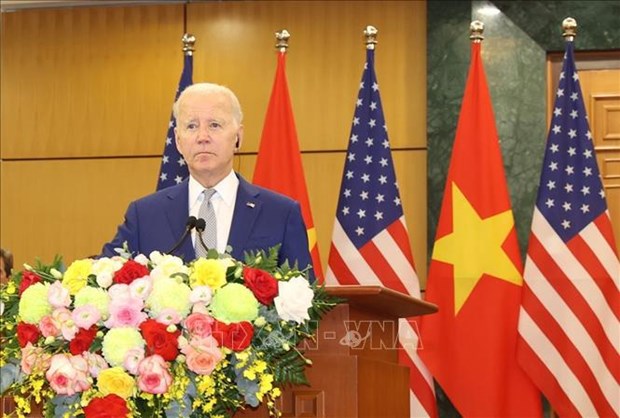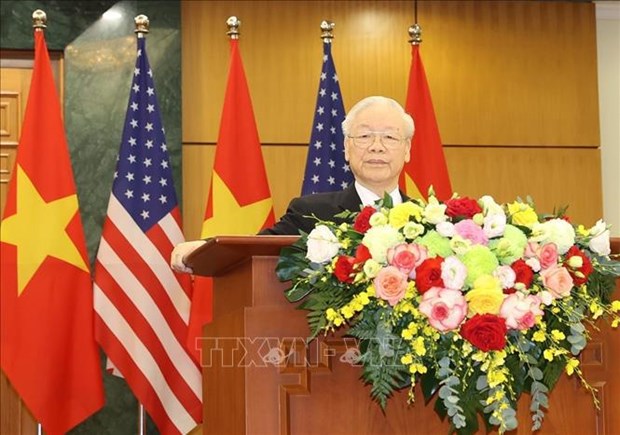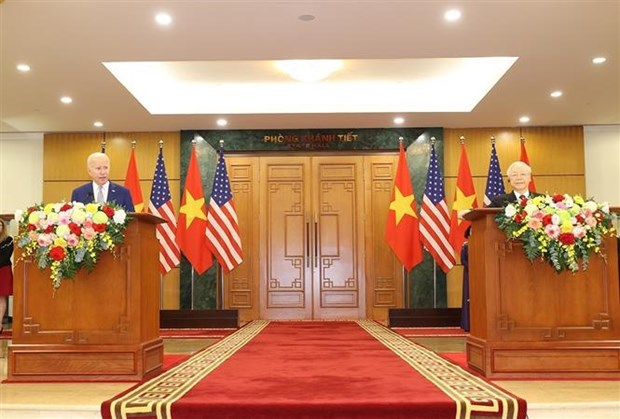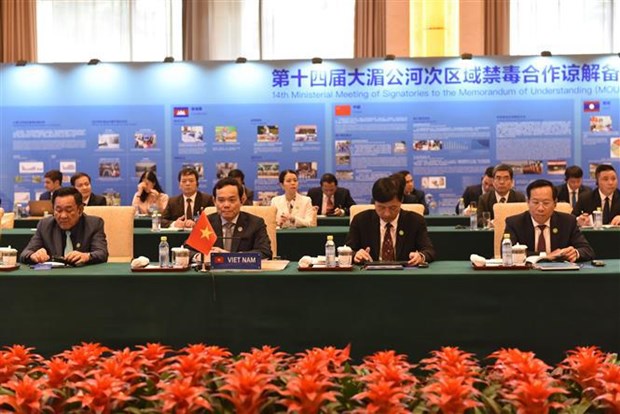On the Vietnam-UK’s 50th anniversary of establishing diplomatic relations (September 11, 1973 - September 11, 2023), Vietnam News Agency correspondents in London interviewed Vietnamese Ambassador to the UK Nguyen Hoang Long about the achievements and prospects in Vietnam-UK bilateral relations.
How would you rate the 50-year achievements of Vietnam-UK cooperation? What are the collaborative strengths you believe should be promoted?
Vietnam and the UK established diplomatic relations in 1973, but trade relations between the two countries have existed for many centuries. Therefore, it can be said that the relationship between Vietnam and the UK is much deeper than the 50-year milestone.
Over the past 50 years, the bilateral cooperation between the two countries has gained many significant achievements. Most importantly, the two sides have created a framework for comprehensive cooperation in many areas.
In terms of political-diplomatic relations, the two countries have established an annual strategic dialogue mechanism at the Deputy Foreign Minister level, periodically rotating and regularly maintaining the exchange of high-level delegations.
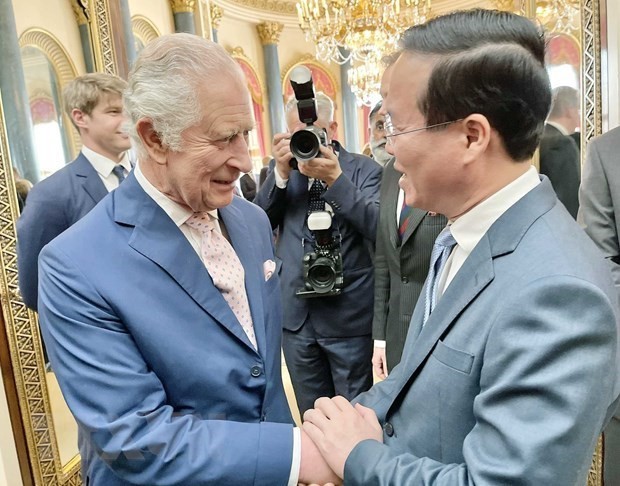 |
| Vietnamese President Vo Van Thuong met with King Charles III of the UK. Photo: VNA |
Since 2021, three delegations of Vietnamese senior officials have visited and worked in the UK, as have ten delegations of British ministers and state secretaries. Maintaining high-level contact promotes cooperation in all areas and improves political understanding and trust between the two countries.
In terms of economics and trade cooperation, the two sides have maintained the annual Vietnam-UK Joint Economic and Trade Committee (JETCO) meetings. Immediately after the UK left the European Union, Vietnam and the UK reached a Free Trade Agreement (UKVFTA), which ensured that two-way trade would not be affected by Brexit.
As a result, the Vietnam-UK bilateral trade turnover has continuously increased in recent years, even during the COVID-19 pandemic, reaching 6.7 billion USD in 2021 and 6.83 billion USD in 2022. Especially, in which Vietnam's trade surplus reaches over five billion USD in 2022. Vietnam is the UK's ninth trade-in goods partner, while the UK is Vietnam's third largest trading partner in the European market.
In terms of development cooperation, the UK is one of Vietnam's biggest investors, having completed a 10-year Agreement on Development Partnership (ADP) with Vietnam from 2006 to 2015.
Despite not providing ODA since 2016, the UK has continued to support Vietnam through development funds such as the Prosperity Fund and the Newton Fund, continuing to support Vietnam's technological development, research, and innovation, strengthening public administration, business environment improvement, green growth, and renewable energy.
Education and training cooperation has been promoted. Currently, nearly 15,000 Vietnamese students are studying in the UK. Besides, British and Vietnamese universities are effectively implementing more than 100 cooperation programs.
In terms of science and technology, the two countries have established science and technology cooperation offices at embassies. In the upcoming time, the UK will proactively support Vietnam towards Industry 4.0, a low-carbon economy and climate resilience, research and innovation, green growth, and renewable energy. The two sides also promote cooperation in new areas in which the UK has strengths such as biotechnology, new materials, quantum, and artificial intelligence.
The Vietnam-UK defense-security cooperation has been proactively promoted. The two countries have exchanged many defense and security delegations and promoted cooperation in training, information exchange, and equipment procurement. The UK’s Secretary of State for Defence paid his first official visit to Vietnam in July 2021. In recent years, British navy ships have regularly visited Vietnam.
The Ministries of Defense of the two countries have raised the annual defense policy dialogue to the Deputy Minister level, established a working group on defense cooperation, and promoted cooperation in many priority areas such as UN peacekeeping, English training, and maritime security.
Vietnam and the UK signed a Joint Declaration to establish a Strategic Partnership in September 2010. In 2020, the two countries issued a new Joint Statement on Strategic Partnership with seven priority areas of cooperation including politics-diplomacy, trade-investment-business, sustainable development and growth, education-training, science-technology, national defense, security, organized crime, people-to-people exchanges, and international issues. The two sides also affirmed their aim to raise the bilateral relations to a higher level in the next ten years.
Vietnam and the UK have also promoted coordination in preventing transnational organized crime, terrorism, illegal migration, and human trafficking, and signed the Treaty between the UK and Vietnam on the transfer of sentenced prisoners and the Treaty on mutual legal assistance in criminal matters. Since 2022, the two countries have established a migration dialogue between the Vietnamese Ministry of Public Security and the UK Home Office, creating an important framework for cooperation in these fields.
 |
| The 9th Vietnam-UK Strategic Dialogue. (Photo: VNA) |
People-to-people exchanges and cultural exchanges between the two countries have many advantages such as the English language, which is considered one of the important means for international integration, being widely taught and learned in Vietnam. More and more British people consider Vietnam as an attractive tourist destination while the number of Vietnamese tourists wanting to visit the UK and experience British culture, sports, and music is also increasing.
The Vietnamese community in the UK with about 100,000 people is a cultural bridge between the two countries. Moreover, direct flights between Vietnam and the UK are a geographical connection, bringing the people of the two countries closer together.
The meaningful activities of Vietnamese associations in the UK and other programs of the Overseas Vietnamese Committee for Overseas Vietnamese have contributed to further connecting the Vietnamese community in the UK to their homeland.
Along with the above advantages, the Embassies of the two countries have also held cultural promotion events, such as the Vietnamese Cultural Days in the UK, which is a bridge connecting the people of the two countries, promoting British people's understanding of Vietnam and introducing the image of Vietnam's country, people, and culture in the UK.
At regional and international forums, the two countries have closely and effectively cooperated during Vietnam's term as a non-permanent member of the United Nations Security Council for the 2008-2009 term and the 2020-2021 term. Both countries are members of the United Nations Human Rights Council for the 2014-2016 term.
In addition, Vietnam has supported the UK's request to become a dialogue partner of ASEAN, and promoted the cooperation between the UK and ASEAN, especially in the ASEAN Chairman in 2020. Vietnam has also supported the UK to join the Comprehensive and Progressive Agreement for Trans-Pacific Partnership (CPTPP).
What do you think about the potential for cooperation between the two countries in the future, both in bilateral relations and in international coordination at multilateral forums?
The two countries' potential for cooperation is large, particularly in areas where the UK has capabilities and Vietnam requires cooperation.
In terms of trade and investment, the two economies are very open and complementary. Britain intends to become more involved in the Indo-Pacific area following Brexit. As a result, Vietnam must capitalize on these prospects and potentials more effectively.
The field of education-science-technology has enormous potential, and it is critical to maintain and expand the Chevening Scholarship Program, to welcome more students to study in the UK under Scholarship 89 of the Vietnamese Ministry of Education and Training and to deploy and expand the Newton Research Support Program.
In terms of addressing climate change, the Vietnamese government has established a road map to achieve net zero emissions by 2050 during the 26th Conference of the Parties to the United Nations Framework Convention on Climate Change (COP26) in Glasgow, Scotland.
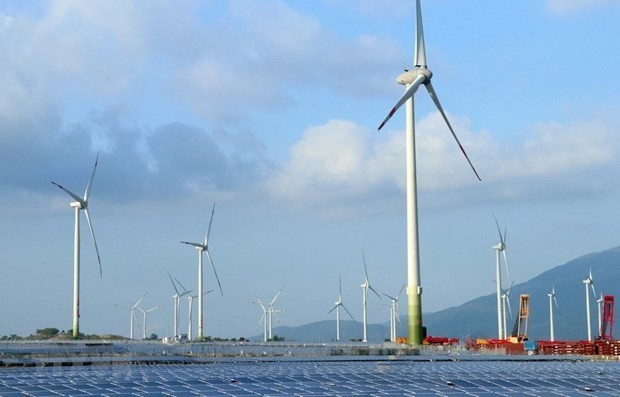 |
| Wind power farm in Ninh Thuan Province. (Photo: Cong Thu/VNA) |
In 2022, the Group of Industrialized Countries (G7) together with Norway, Denmark, and Vietnam adopted a Political Declaration to join the Just Energy Transition Partnership (JETP). This is a great effort of all countries, including the important role of the UK, which has mobilized 15.5 billion USD to reform and create a framework for renewable energy investment in Vietnam.
This, in my opinion, will be a key area of cooperation between the two countries in the near future. Vietnam must implement and effectively utilize JETP support to transition to green energy and achieve the net zero emissions target.
Can you tell us about the priority of Vietnam-UK collaboration in 2023 and subsequent years?
The focus of the Vietnamese Embassy's work in the UK is to actively promote and deepen the Vietnam-UK Strategic Partnership, with the key activity in 2023 being the 50th anniversary of the two countries' diplomatic relations.
The priorities to promote the strategic partnerships include strengthening economic and trade relations with the effective implementation of the UKVFTA; taking advantage of opportunities after the UK joins the CPTPP; and promoting cooperation in financial services, renewable energy, investment, digital economy; promoting defense-security cooperation, especially in maritime security, cyber security, and illegal immigration; supporting the green transition and combating climate change through the JETP implementation; improving educational cooperation, including university, high school, vocational education, quality certification; enhancing cultural, tourism and people-to-people exchanges; and promoting bilateral cooperation at multilateral forums such as the United Nations, ASEAN.
What should the two countries do to strengthen bilateral relations?
The two countries need to increase the high-level delegation exchange, thereby creating new momentum for bilateral relations.
The two nations must also effectively implement the signed cooperation frameworks, including the UKVFTA, the JETP, and other mechanisms for collaboration in education, science and technology, security, and defense. Furthermore, the two sides should develop and approve an action plan to concretize commitments and goals for bilateral cooperation in the future term.
How have the two sides coordinated this year to mark the 50th anniversary of bilateral relations? What events has the Vietnamese Embassy in the UK organized to celebrate this event?
Half a century is a significant milestone in the two countries' relationship. As a result, plans for this year were planned early on by the Embassy and its British partners, the Foreign, Commonwealth and Development Office (FCDO).
On February 22, the FCDO held a ceremony to announce the Vietnam-UK Friendship Year at the FCDO headquarters in London with the participation of Speaker of the British House of Commons Sir Lindsay Hoyle, Secretary of State for Defence Ben Wallace, and Minister of State for Indo-Pacific Anne-Marie Trevelyan. The Embassy's activities have received enthusiastic support from the FCDO, agencies, localities, and businesses of the UK.
This year, the Embassy plans on organizing 50 cultural events, as well as advertising, trade promotion, investment, educational collaboration, and people-to-people exchanges with communities throughout the UK. The Photo Exhibition events commemorating 50 years of Vietnam-UK relations, Vietnamese Cultural Days in London including contemporary art exhibitions and Vietnamese fashion shows, discussions on the history of Vietnam-UK relations, and educational talks; and the Meet Vietnam program series in Birmingham, Manchester, Belfast, Northern Ireland, Wales, and Scotland are highlights.
In particular, the Embassy organized a series of activities called "Following Uncle Ho's footsteps," which included visits to locations where President Ho Chi Minh had lived and worked in the UK.
Long Pham / Source: Vietnamtimes



